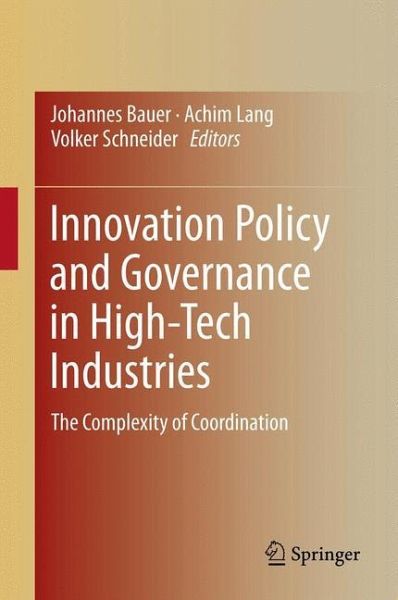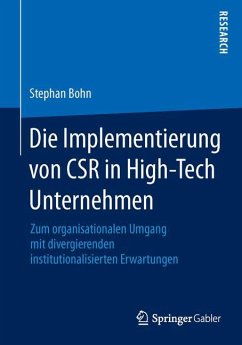
Innovation Policy and Governance in High-Tech Industries
The Complexity of Coordination
Herausgegeben: Bauer, Jo-Hannes; Lang, Achim; Schneider, Volker

PAYBACK Punkte
38 °P sammeln!
The book examines the conditions for successful high-technology policy from theoretical and empirical perspectives. It enhances the predominant national systems of innovation approach to innovation policy with concepts based on new developments in the governance of complex systems and processes. The conceptual framework of complex networks and systems is used to examine national policy approaches in countries that have created environments conducive to high-technology industries as well as individual high-technology sectors, such as biotechnology, alternative energy, and aerospace. Theoretical...
The book examines the conditions for successful high-technology policy from theoretical and empirical perspectives. It enhances the predominant national systems of innovation approach to innovation policy with concepts based on new developments in the governance of complex systems and processes. The conceptual framework of complex networks and systems is used to examine national policy approaches in countries that have created environments conducive to high-technology industries as well as individual high-technology sectors, such as biotechnology, alternative energy, and aerospace. Theoretical and empirical contributions are synthesised into lessons for high-tech policy and further research.














